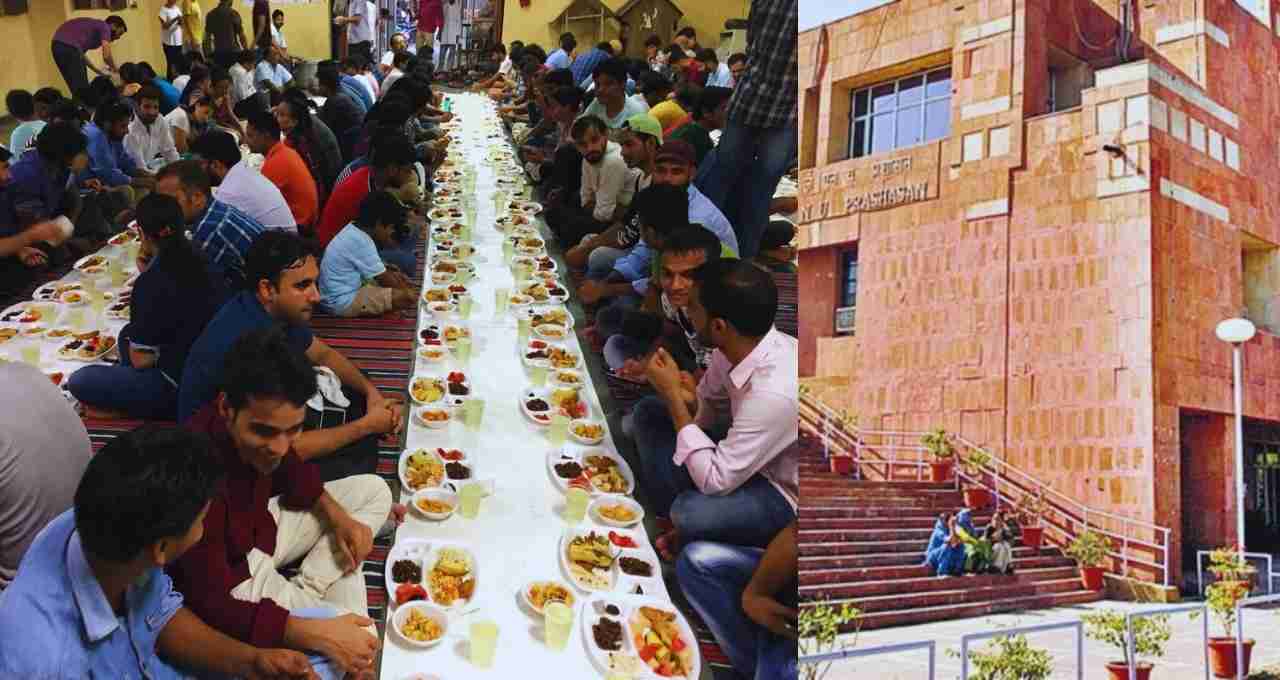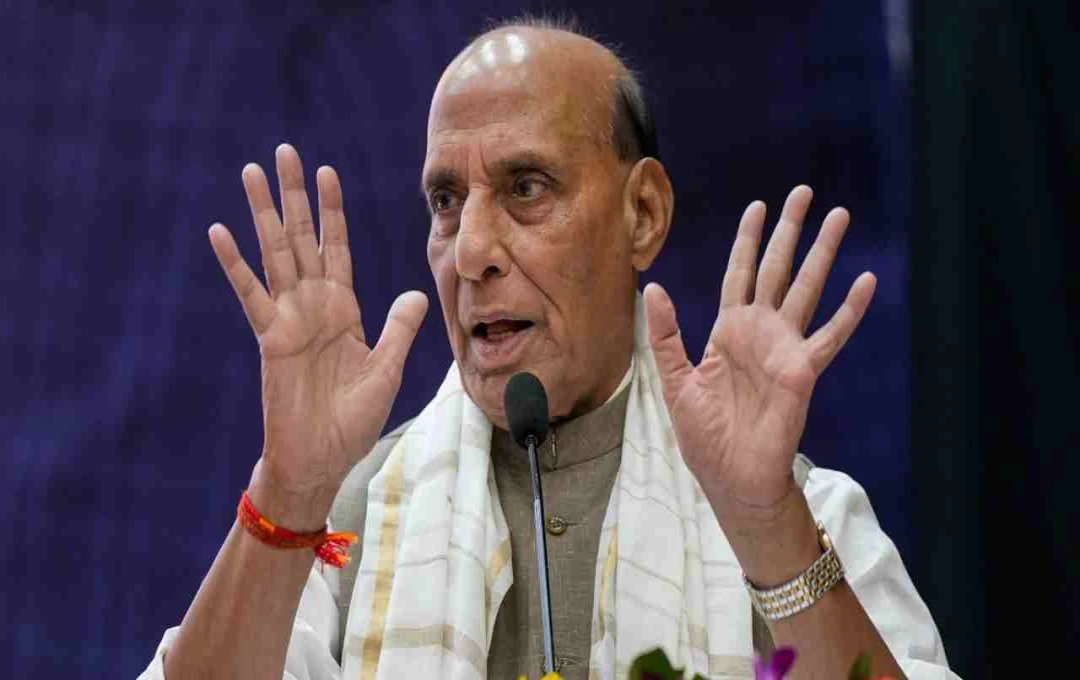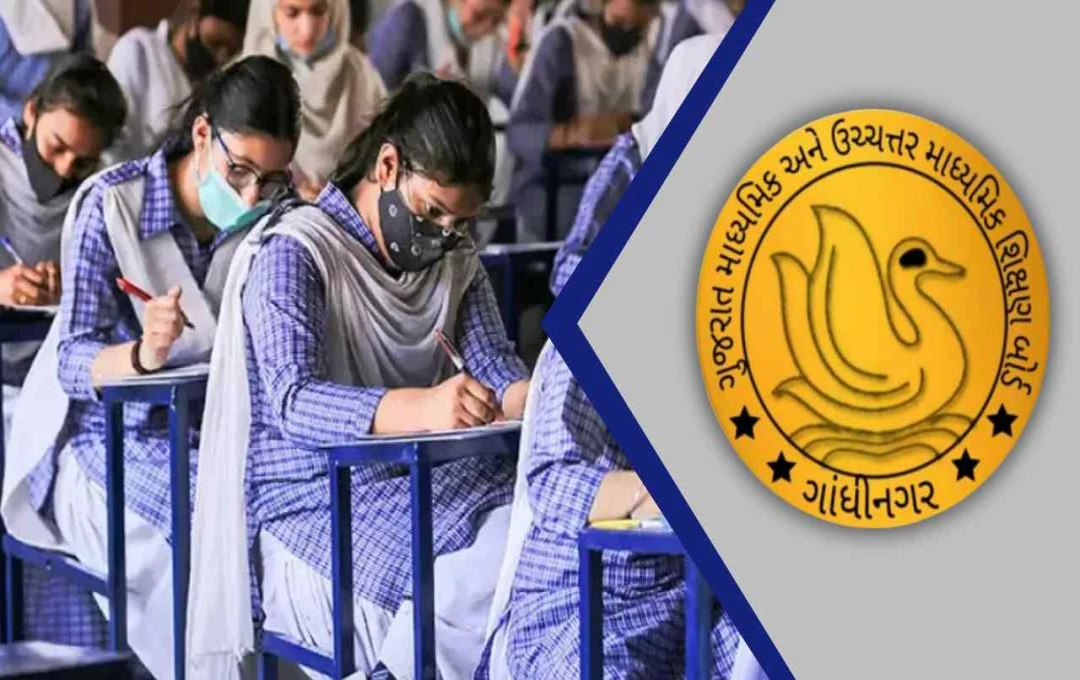A controversy has erupted at JNU's Mahi-Mandavi hostel over separate seating arrangements for vegetarian and non-vegetarian food. The JNUSU has called it an attempt at saffronization, while ABVP-affiliated students are terming it a decision by mutual consent.
JNU: Jawaharlal Nehru University (JNU), the country's most talked-about and ideologically active university, is in the news once again. This time, the center of the dispute is—food. Yes, the vegetarian and non-vegetarian food served in the mess has now become a topic of ideological debate. The arrangement of separate tables for students eating vegetarian and non-vegetarian food in the Mahi-Mandavi hostel has sparked a new debate in the university.
While some students are linking it to purity and the right to choice, the student union is calling it a direct attack on JNU's inclusive culture. The Student Union (JNUSU) General Secretary, Munteha Fatima, has termed it an attempt to 'saffronize the campus'.
The Beginning of the Controversy
On Wednesday, a poster was seen in the mess of Mahi-Mandavi hostel stating that 'students eating vegetarian and non-vegetarian food should sit at separate tables.' After this information became public, there was a stir in the student union. JNUSU called it a violation of hostel rules and said that it is a conspiracy to spread 'social and cultural discrimination regarding food.' On the other hand, the hostel president associated with ABVP claimed that this decision was taken by mutual consent, and there is no compulsion in it.
Munteha Fatima's Statement: This is an Attack on the Soul of JNU

JNUSU General Secretary Munteha Fatima clearly stated that, 'I was surprised to see the arrangement of separate tables for vegetarian and non-vegetarian students in Mahi Mandavi Hostel. This is against the ideology and inclusive culture of JNU. This is not just about food; it is an attempt at ideological division under the guise of food.' She demanded an investigation from the administration and stated that the Senior Warden was unaware of this arrangement and has assured the formation of an inquiry committee.
ABVP's Response: Respecting Students' Sentiments is Important
Meanwhile, ABVP-affiliated student leader and Mahi Mandavi Hostel official Vaibhav Meena said that, 'This arrangement was made with the mutual consent of the students. Vegetarian students were having problems with the smell of non-vegetarian food and the purity of utensils. Therefore, this decision was taken on the basis of personal sensibilities, not cultural or ideological ones.' He also alleged that the leftist union has no solid issue left now, so they are giving a political color to even ordinary subjects like “food”.
Purity of Food vs. Freedom of Ideology

This controversy has raised a deep and important question—can the choice of food be considered interference in ideological freedom? Vegetarian students say that the purity of food is affected by cooking non-vegetarian food in the same utensils, while non-vegetarian students consider it an attack on food freedom. In a university like JNU, where the diversity of ideas is considered paramount, this kind of food-based division can create a rift in the student community.
Administration's Silence, Students' Concern
No official statement has been issued by the JNU administration so far. The Senior Warden has assured the formation of an inquiry committee, but students doubt the impartiality of the administration's role. JNUSU has demanded that the university administration issue clear guidelines on this issue and ensure that there is no religious or cultural division in the hostel.
Question on JNU's Legacy
JNUSU alleges that this dispute is not limited to the mess table, but is an attack on JNU's inclusive legacy. Munteha Fatima accused the ABVP of pushing the university towards 'saffronization' and said that, 'We will not allow the culture of JNU to be broken under any circumstances.'















